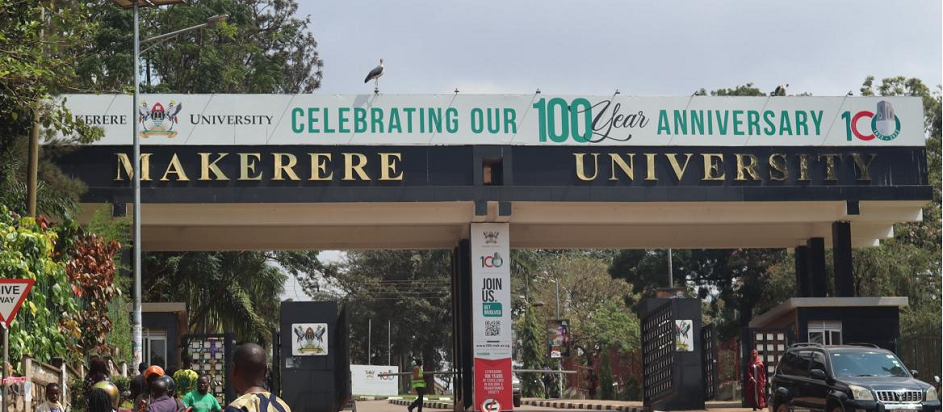Shimoni Core PTC will be hosting UNITE as government phase out 23 Primary teachers’ colleges.
The Ministry of Education and Sports has set avenues through which Grade III teachers can upgrade and attain bachelor’s degree qualifications as required by the 2019 National Teacher Policy. Grade III is the lowest level of education that was previously required of anyone to register as a teacher at the primary level.
However, the Ministry has given the teachers including their colleagues of V, the minimum qualification for a secondary teacher up to 2030 to upgrade to a bachelor’s degree in Education. Available statistics show that Uganda has over 250,000 active Grade III teachers, which is almost half of the 550,000 teaching force in the country.
The proposal to phase out the Grade III and Grade V qualifications triggered panic among the affected teachers with many wondering how they can attain the required qualifications in the next seven years. Unlike their secondary counterparts who have only one step to upgrade, primary teachers have two steps to reach the desired minimum qualifications. To simplify and streamline the teacher’s path to upgrade their qualifications, the education ministry is looking at three possible routes.
Dr. Jane Egau, the Director in charge of Higher Education, says that besides the normal route of acquiring a diploma and later a degree, they are going to encourage older teachers to enrol for bachelor’s degrees through mature age entry. “Going for a diploma then a degree is the primary route but appears longer. One might take five or a little bit more years. But, we think, our old teachers can use the mature age entry window. Teachers should be able to pass the mature age entry exams,” Dr Egau noted.
To qualify for the mature entry scheme in several universities, one should at least be 25 years of age. It does not matter whether the person dropped out of school or stopped as long as he has some formal education. The candidate should also pass the national aptitude examinations, which test English comprehension, mathematics and general knowledge.
Dr. Egau says that teachers can as well take another shortcut by enrolling for a higher education certificate, which takes one year and serves as a stepping stone for admission to the desired bachelor’s degree programme.
Those seeking to take the normal route to attain a diploma and a degree will have to return to core Primary Teachers’ Colleges for upgrading. This group of teachers might use a minimum of five years to attain the required qualifications with the diploma and degree programs taking three and two years respectively, according to information obtained by our reporter.
At first, it was thought the core PTCs would be satellite campuses for the Uganda National Institute of Teacher Education (UNITE), which is going to take on the role of handling teacher education. It is currently under Kyambogo University which inherited it from the Institute of Teacher Education Kyambogo (ITEK).
However, when the ministry formed a task force for forming UNITE, it adapted the National Teacher Colleges-NTCs (colleges that have been training Grade V secondary teachers) to serve as campuses for the new institution in offing.
Carol Kavuma, the Coordinator of the Uganda National Institute of Teacher Education-UNITE establishment taskforce, says that although they established what relationship the core PTC have with UNITE, they have agreed that these colleges be used as upgrading centres for primary teachers.
Kavuma says that this function will be taken to the time when all Grade III teachers will be assumed to have upgraded. Whereas UNITE has already established its working relationship with NTCs pending approval from NCHE, the ministry is still undecided on whether these colleges will become affiliates to UNITE or satellite campuses.
Humphrey Okello, the Principal Bulera Primary Teacher’s College Hoima, says that under the new arrangement 23 core PTCs will be offering both in-service and pre-service training to teachers. Okello’s explanation means that teachers who wish can study full time as they pursue their diploma or study during holidays.
Dr Egua also adds that they will be running a pre-service programme for willing teachers. However, this arrangement presents a challenge. Gyaviira Tamale, a teacher in Masaka says that teachers might find it difficult to go for a pre-service arrangement.
“We already have responsibilities, there is no way you can put a pre-service arrangement for our group of people. Maybe this is targeting those who are currently in colleges to enrol immediately but the question is will their result be back? The question is on who will bridge the teaching gap if the majority of the teachers rush for this programme?” Tamale wondered.
With several questions still unanswered, Okello says they have been notified that core PTCs might assume this new function when the new academic year opens. PTC’s academic years normally rhyme with the primary and secondary school calendar. Already government had halted PTCs from admitting seniors to four levels.
Who will fund the studies?
According to a reliable source in the ministry of education, the government intends to cover at least 70 per cent of the tuition fees for teachers who will be upgrading through core PTCs. “Currently there are discussions on the unit of teaching these teachers but it is thought that government will cover up to 70 per cent and the students will pay thirty and also cover for utilities,” the source added.
Although Dr Egau didn’t want to openly accept that there will be a cost-sharing arrangement, she noted that the ministry intends to use the existing vote for PTCs to facilitate those who will be upgrading at the diploma level.
Dr Egau also hinted that there might be other means by, which government might support teachers who will be upgrading using the two aforementioned options. She however declined to divulge details saying the matter is still subject to approval by higher authorities.
“There is a budget for PTCs this one will be key and that is a good start. Of course, the unit cost might change given the type of people that will be handled. However, much of these issues are still being discussed internally,” the director told our reporter.
Under the programme, the ministry also intends to integrate the program for the certificate in early childhood education. Okello says that they held several meetings where they agreed that some core PTC will be selected to handle ECD trainees.
Kavuma notes that only students who went to institutions that had been accredited to teach a certificate in ECD will be admitted to the diploma programme.
-URN






Thanks for updating us.
Hi. I sat A level and i have two principal passes. I now have a certificate in ecd. Cant i join at ptc minus writing mature age exams
How can other institutions with interest in improving the quality of teacher education partner with UNITE to advance this good cause?
Are there avenues that have been put in place for such partnerships?
Are the COVID 19 Years off?
When did the count downof 10 years begin begin?